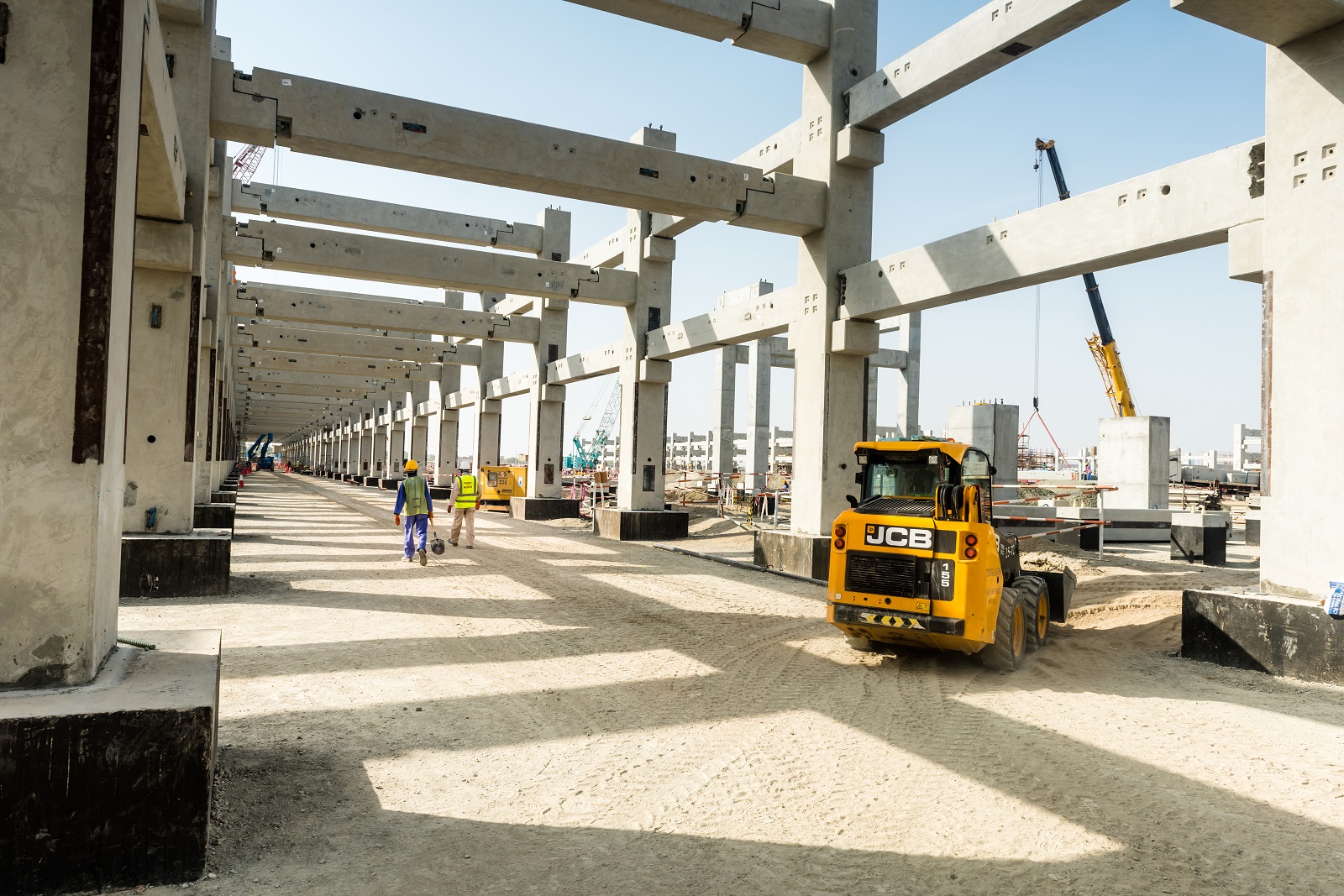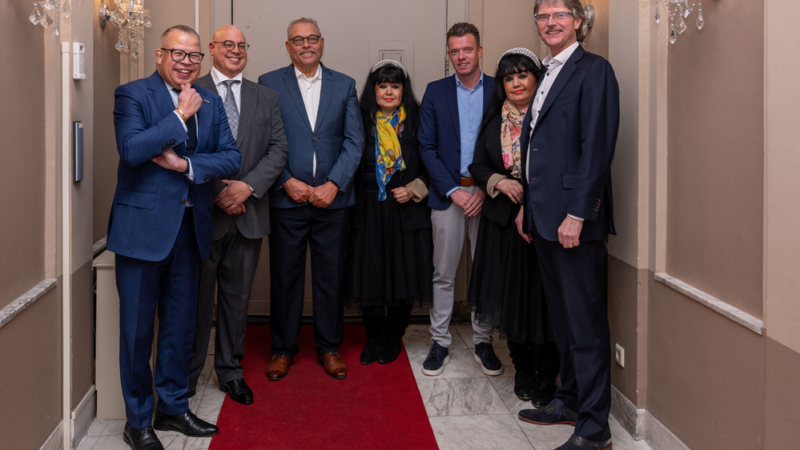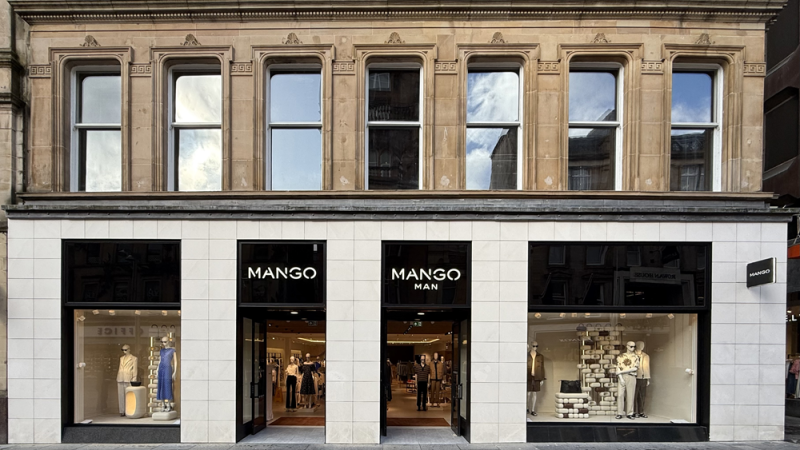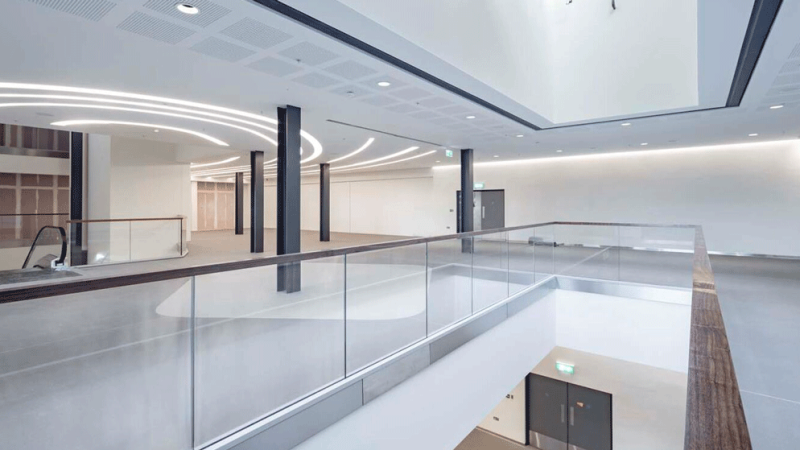Douglas OHI has been operating in Oman for over 40 years, working across the full spectrum of construction projects, from heavy civil works such as power plants and big petrochemical plants to joinery and fit-out works for five-star hotels and resorts, business-class lounges, and high-end restaurants.
“We offer the full spectrum of construction capabilities,” explains Michael Hall, General Manager of Douglas OHI, Oman. “Our company offers a complete range of construction proficiency. Our goal is to provide our clients with effective solutions to their construction challenges by utilising innovative technology and employing robust project planning methodologies. We strive to resolve our clients’ construction problems and deliver successful outcomes that meet their expectations.”
The Bigger Jobs
But while Douglas OHI performs a wide range of work, that doesn’t mean they take on just any project.
“We do not strive to make a rivalry out of our more commercially competitive peers by taking on the same work as theirs. Rather, our angle is to challenge ourselves with trickier jobs where we can demonstrate and highlight our team’s expertise and the Douglas OHI value,” Hall says.
One such job was an ambitious petrochemical plant project Douglas OHI took on in the city of Sohar.
“Our petrochemical plant project in Sohar was a memorable one. The project’s requirements were seemingly formidable at first, as we had to tie in the green field project to a brownfield site where the existing facilities and infrastructure still needed to be intact and stable,” Hall recalls. “Our team went through rigorous planning, interfacing, and coordinating with multiple stakeholders. It was an opportunity for our team to showcase our experience and capabilities, and we are glad to have successfully delivered the big-scale project up to the standards and quality of our organisation and that of our client’s expectations.”
It was a complex project, building a new multimillion-dollar petrochemical plant while also ensuring it connected with existing infrastructure and making sure those utilities stayed live throughout the construction process. Fortunately, it was a challenge Douglas OHI’s people had spent years preparing for.
“We are proud of the accumulative decade-long knowledge and skills we have acquired in the Sultanate. We have worked on different sectors in Oman’s construction industry and played a significant role in the country’s power sector, contributing to over 50% of Oman’s power capacity,” Hall says. “We have also built large refineries in Sohar, Salalah, and Duqm. These refineries enable the flow of the downstream petrochemicals, plastics, and ammonia–the by-products of refining.”
But the foundation of all those skills is a fundamental understanding of Douglas OHI’s end-user requirements and how they operate.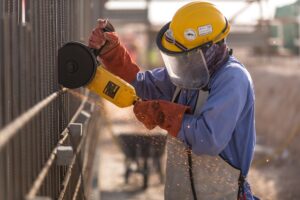
“We always ensure that we integrate the wider project requirements into the existing operations. Our team deliberately finds an efficient solution that will not hinder or halt ongoing works whenever there is a switch-over or a tie-in,” Hall emphasises.
“Whenever we embark on a new project, we carefully assess how we can provide innovative solutions to our client’s varying and complex construction needs, allowing us to grow our capabilities and experience. With this, we ensure that our clients are satisfied and happy, enabling us to have a repeat and long-term partnership with them,” Hall remarks.
Maintaining the portfolio of skills Douglas OHI needs can be a challenge in itself. The company’s work includes heavy industrial and high-end luxury construction projects, and the skills across both sectors are specialised and not necessarily transferable.
“At a trade skill level, these are specialist trades. An individual on one of our power plants is rarely able to use his skill set on a fit-out project,” Hall says. “Everyone at Douglas OHI is highly encouraged to join our tailored training programs. We implement these training programs to look at how we can maximise and utilise the skills of our employees. We want to make sure our employees have sufficient experiences and opportunities across different sectors.”
Equipping people with those skills serves multiple purposes.
As Hall points out, “We also want to ensure our people are not pigeonholed for one particular type of job. We want to balance resources depending on the work in the market. We are looking to take on this challenge so we can be multidisciplined in our approach to clients.”
Hall further adds, “Our company believes in continuous learning, so we also develop these programs to help our employees’ personal and professional growth to boost their confidence and career satisfaction.”
Omanisation
Douglas OHI invests in developing talent, but more than that, it invests in developing Omani talent.
“In Oman, we have an initiative called Omanisation. This is one of our key initiatives, working with the government in terms of joint training programs,” Hall explains. “It is about integrating Omani nationals into our workforce at all levels–staff, workers, and productive on-site workers. It is delightful to see the positive results of the numerous programs that support hiring local talents.”
 50% of Douglas OHI’s staff are Omani, across a variety of positions on the operational side of the business, including engineers, foremen, all the way through to office staff and heads of department.
50% of Douglas OHI’s staff are Omani, across a variety of positions on the operational side of the business, including engineers, foremen, all the way through to office staff and heads of department.
“We have built it up over time with a lot of long-serving employees,” Hall says.
“Training and investing in our people is a key area for us, from our workers all the way through to leadership.”
This is not just about recruitment; however, it is also about developing and investing in people. Wherever possible, Douglas OHI helps its staff pursue external certification from a range of different skill bodies. One organisation the firm
has done a lot of work with is the Chartered Institute of Building (CIOB). Several of Douglas OHI’s staff have achieved membership, with other staff currently looking to achieve it.
But at the same time, international talent remains a key ingredient, and finding that talent has become a much steeper challenge over the last few years.
“Following the global pandemic, many people re-treated to their home countries, be it in Asia or Europe,” Hall acknowledges. “But we are seeing reassuring signs that the movement of people is coming back. However, the challenge now is to get them to return to Oman, as the other countries in the region are also booming markets, desperate to hire experienced talents. To combat this, we put our efforts into developing tailored training and talent recognition programs for our employees to make Oman their top choice for employment.”
As well as certification from the CIOB for its staff, Douglas OHI has also received recognition in the form of its sixth consecutive the Royal Society Prevention of Accidents Award (RoSPA).
“We are the only contractor in Oman to achieve a RoSPA Gold Medal Award,” Hall tells us. “Now, other regional contractors are also taking on initiatives to improve their HSE operations. Receiving accolades from prestigious and highly regarded associations is always both a great honour and an encouragement for us to take a step up. We receive these awards not just because of our processes and procedures. Most importantly, it is with the help and cooperation of the whole team.”
Hall also highlights, “We are able to move as one because we have a full understanding of the importance of employee welfare, how we engage our employees, and how we ensure their safety by providing a healthy environment that will not compromise their physical, mental, and emotional health.”
Aside from developing its people, one of the most recent initiatives by Douglas OHI is expanding its geographical presence. In 2022 the company expanded and established offices in Saudi Arabia and Abu Dhabi. Talking to Hall, it is clear he is thrilled about the possibilities here.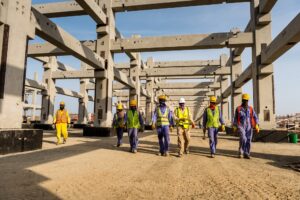
“A big part of our work in Oman over the years has been supporting international companies coming into the country to build multi-billion-dollar projects,” Hall says. “We are in a position to support these clients in new markets, which we are very excited about.”
As well as expanding geo-graphically, the company is pushing into the green space with solar, wind, green ammonia, and smart cities.
“We want to play a role in our approach to innovation to put us at the forefront of these new types of projects,” Hall says. “We are now looking at a bigger picture with a new business objective, and we have a lot of energy going into this. We want to get our employees behind a common strategy and common culture. It is something we are keen to start rolling out quite soon.”
